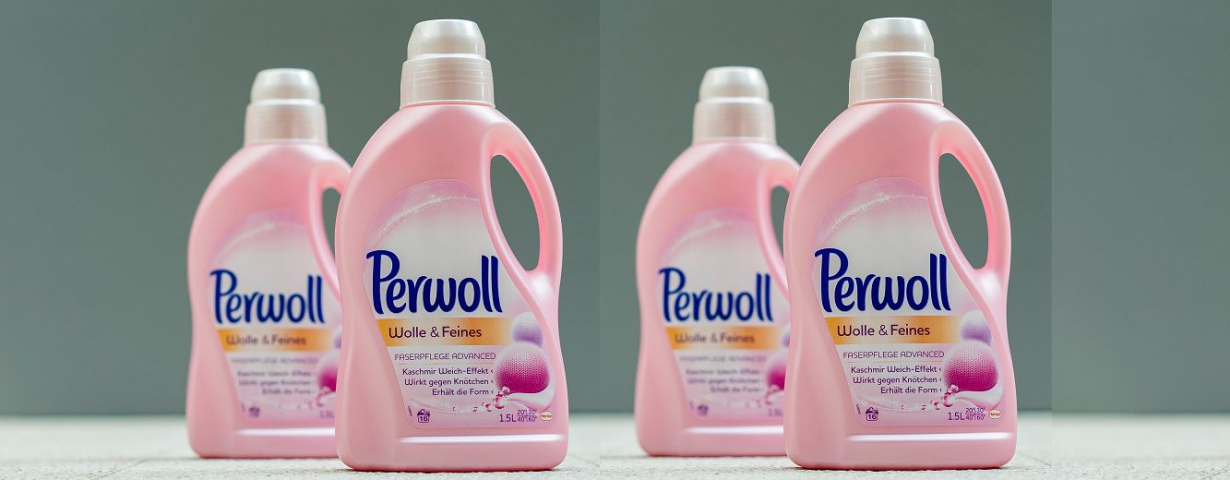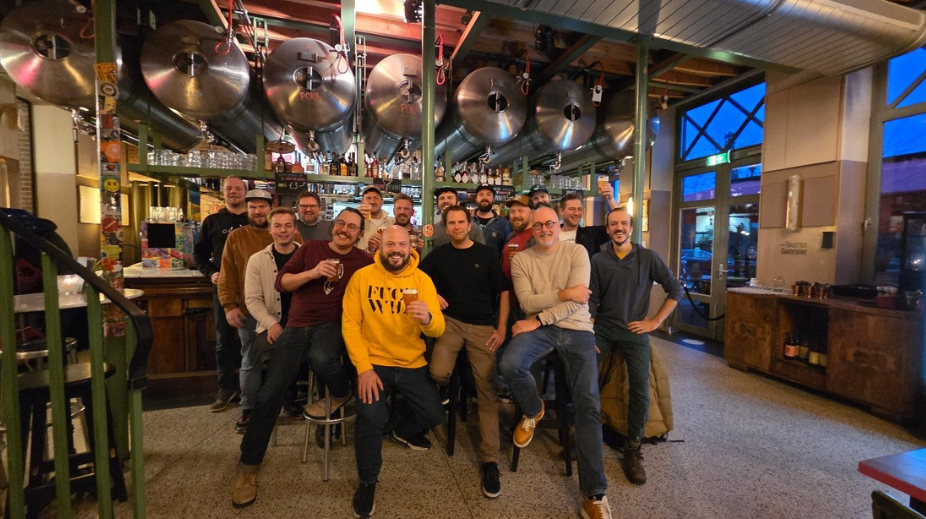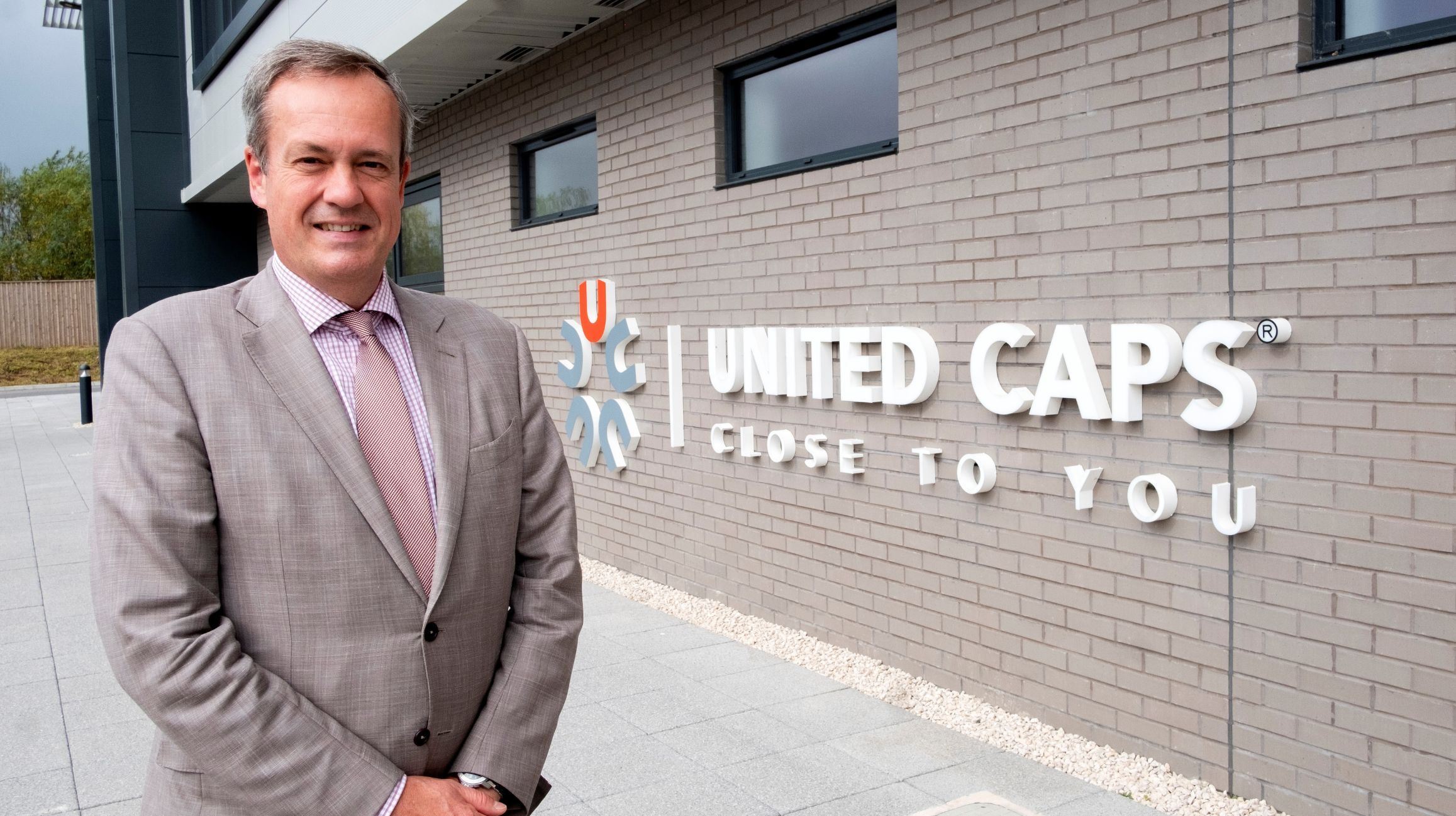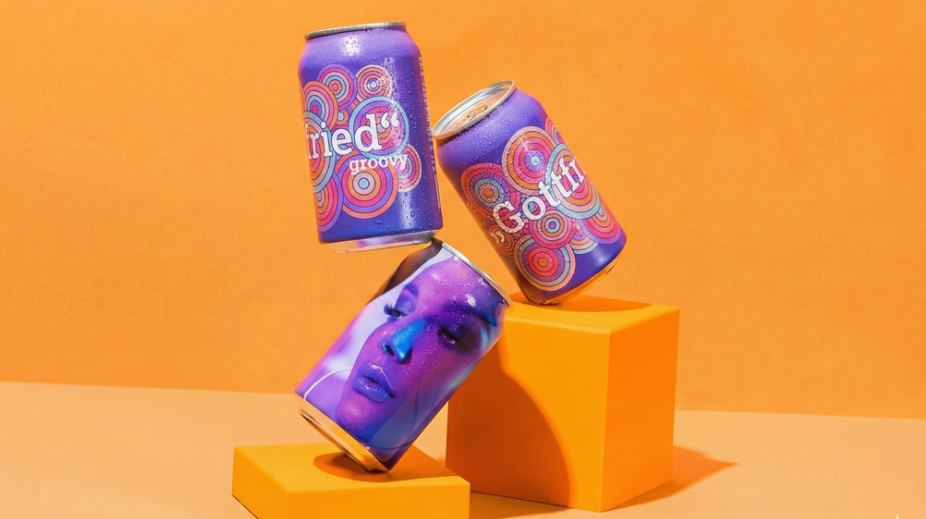
Henkel-fles van chemisch gerecycled plastic
Voor het eerst heeft Henkel verpakkingen geproduceerd met behulp van chemisch gerecycled plastic in samenwerking met verpakkingsfabrikant Alpla. Door chemische recycling kan gemengd plastic afval dat voorheen onmogelijk te recyclen was, effectief opnieuw worden verwerkt en hergebruikt. Het pilootproject met flessen Perwoll maakt deel uit van het ChemCycling-project onder leiding van BASF.
‘We zien een enorm potentieel voor chemische recycling als aanvulling op conventionele mechanische recycling", zegt Thorsten Leopold, hoofd verpakkingen bij Henkel. “Mechanische recycling wordt beperkt door het feit dat niet alle plastic afval kan worden verwerkt tot bruikbaar materiaal. Dankzij chemische recycling kunnen fossiele hulpbronnen worden vervangen door gerecycled materiaal gemaakt van plastic afval. Dit project is een belangrijke extra stap in de richting van een circulaire economie voor plastic - op basis hiervan evalueren we verdere mogelijkheden voor de integratie van chemisch gerecycled plastic in onze productverpakkingen.'
'Het pilootproject met de Perwoll-fles van Henkel heeft aangetoond dat producten gemaakt met behulp van chemisch gerecyclede grondstoffen dezelfde hoge kwaliteit en prestaties bieden als producten gemaakt van fossiele materialen. Met ChemCycling wordt het aandeel gerecycled materiaal dat het productieproces ingaat toegewezen aan het eindproduct door de Mass Balance-methode’, zei Anja Winkler, BASF hoofd van Home & Personal Care.
‘Door chemische recycling kan grondstof duurzaam worden vastgehouden binnen de materiaalcyclus - de koolstof die het bevat kan daardoor worden hergebruikt’
Chemische recycling
Mechanische recycling omvat het breken, reinigen en opnieuw verwerken van gescheiden kunststofafval terug in granulaatvorm. De uitdaging die inherent is aan deze methode is dat de kwaliteit van het resulterende gerecycleerde product slechts zo goed kan zijn als die van het "invoermateriaal". Onzuiver plastic, evenals kleur en een mix van materialen kunnen de kwaliteit van het gerecyclede product negatief beïnvloeden en het recyclingproces bemoeilijken. Bovendien kan plastic niet eindeloos worden verwerkt door mechanische recycling. Met chemische recycling kan plastic afval dat niet mechanisch kan worden gerecycled, opnieuw in de materiaalcyclus worden gebracht. ChemCycling gebruikt thermo-chemische processen om plastic afval om te zetten in pyrolyse-olie. Deze secundaire grondstof dient vervolgens als grondstof voor de chemische industrie om plastic te produceren voor verschillende doeleinden, zoals verpakkingen. De verpakkingen van deze chemisch gerecyclede materialen zijn van dezelfde kwaliteit als verpakkingen van nieuw plastic. Hierdoor kunnen fossiele hulpbronnen worden bespaard en afval worden verminderd.
Henkel is collaborating on a chemical recycling project with BASF
First Henkel bottles made of chemically recycled plastic
For the first time, Henkel has produced bottles using chemically recycled plastic in collaboration with packaging manufacturer Alpla. Through chemical recycling, mixed plastic waste that was previously impossible to recycle can be effectively reprocessed and reused. The pilot project with bottles of Perwoll is part of the ChemCycling project led by BASF.
“We see huge potential for chemical recycling to complement conventional mechanical recycling,” said Dr. Thorsten Leopold, Head of International Packaging Development Home Care at Henkel. “Mechanical recycling is limited by the fact that not all plastic waste can be reprocessed into useable material. Thanks to chemical recycling, fossil resources can be replaced with recycled material made from plastic waste. This project is an important additional step towards creating a circular economy for plastic – on this basis we are evaluating further opportunities for integrating chemically recycled plastic in our product packaging.”
“The pilot project with Henkel’s Perwoll bottle has shown that products made using chemically recycled raw materials boast the same high quality and performance as products made of fossil materials. With ChemCycling, the proportion of recycled material that goes into the production process is assigned to the end product by the Mass Balance method. This can help our customers achieve their sustainability goals,” said Anja Winkler, BASF Head of Global Key Account Management Henkel Home & Personal Care.
“Through chemical recycling the resource plastic can be durably retained within the material cycle – the carbon it contains can thereby be reused. This is how chemical recycling could complement established technologies like mechanical recycling. The quality of the materials tested has convinced us,” said Nicolas Lehner, Chief Commercial Officer for Alpla.
Chemical recycling as a useful complement
Mechanical recycling involves crushing, cleaning and reprocessing separated plastic waste back into granulate form. The challenge inherent to this method is that the quality of the resulting recycled product can only be as good as that of the “input material”. Impure plastic, as well as color and a mix of materials can negatively impact the quality of the recycled product and make the recycling process more difficult. In addition, plastic cannot be reprocessed endlessly through mechanical recycling. Chemical recycling allows plastic waste that can’t be recycled mechanically to be reintroduced into the material cycle. ChemCycling uses thermo-chemical processes to transform plastic waste into pyrolysis oil. This secondary raw material then serves as feedstock for the chemical industry to produce plastic for various purposes, such as packaging. The packaging produced using these chemically recycled materials is of the same quality as packaging made of new plastic. This allows fossil resources to be saved and waste to be reduced.
Commitment to a circular plastic value chain
The collaboration with BASF and Alpla on the ChemCycling project is yet another example of Henkel’s commitment to sustainable packaging. The company has already reached various milestones in the implementation of its packaging strategy: many product packages today are made of 100 percent recycled plastic. When integrating recycled plastic in its packaging, Henkel uses 99 percent of recycled plastic from consumer households (post-consumer recycled material). In addition, Henkel’s packaging experts are working on improving its packaging’s recyclability: for instance, they developed the first recyclable black packaging and introduced perforated sleeves that can easily be removed when disposing the bottle. Most recently, Henkel made its software tool for evaluating the recyclability of packaging (EasyD4R) – which was developed in-house – available to other companies for free.
To drive progress towards a circular economy, Henkel is also partnering with various players across its value chain: among others, the company is a member of the German Rezyklat-Forum, the global Alliance to End Plastic Waste (AEPW) and the New Plastics Economy (NPEC).
Presentation at the K2019 trade fair
Dr. Thorsten Leopold from Henkel will be presenting the pilot project together with BASF during a live talk at the K2019 trade fair in Düsseldorf on October 23, 2019, stand C21/D21, hall 5.
Visit www.henkel.com/plastic for more information about Henkel’s progress and activities in the field of plastic.
Meer artikelen



Gerelateerde artikelen
Craft Coöperatie brouwers gaat gezamenlijk verpakkingen inkopen
Dertien onafhankelijke Nederlandse craftbrouwerijen hebben vorige week officieel Craft Coöperatie...
UNITED CAPS scherpt operatie en productstrategie aan voor PPWR
In een terugblik op het jaar 2025 spreekt CEO Benoit Henckes van UNITED CAPS over een jaar waarin...

VM nieuwsbrief
- Blijf op de hoogte met het laatste nieuws uit de verpakkingsindustrie
- Techniek, duurzaamheid, design en meer
- Gratis in jouw inbox
.png)
